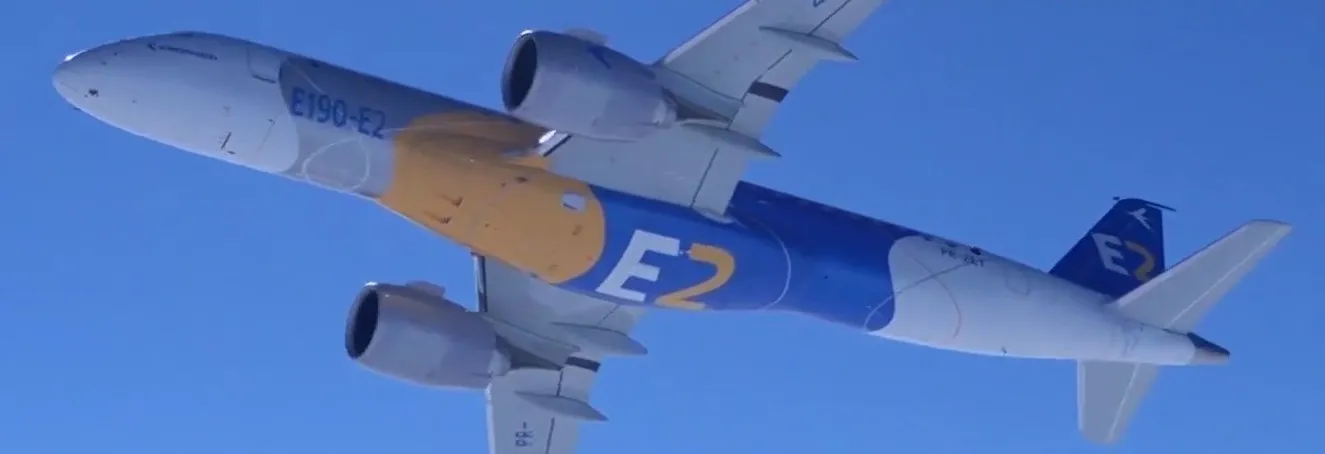
Boeing flags controlling interest in Embraer commercial jet unit
Jul 05, 2018

Boeing has secured a controlling interest in Embraer's commercial jet unit, significantly enhancing its position in the aviation market. This strategic move allows Boeing to expand its product offerings and strengthen its competitiveness against major rivals. The partnership is expected to leverage Embraer's expertise in regional jets while integrating Boeing's extensive resources and technology. This collaboration aims to create innovative aircraft solutions, improve operational efficiencies, and meet evolving customer demands in the commercial aviation sector. The acquisition underscores Boeing's commitment to growth and innovation, positioning both companies for future success in an increasingly competitive landscape.
Boeing's recent announcement regarding its "controlling interest" in Embraer's commercial jet unit has sent ripples throughout the aviation industry. This strategic move aims to strengthen Boeing's position in the competitive market for "regional jets" and enhance its product offerings. With "Embraer" being a key player in the regional aircraft sector, this partnership could reshape the future of commercial aviation.
The Significance of the Partnership
The partnership between Boeing and Embraer is significant for several reasons. First, it allows Boeing to expand its footprint in the regional jet market, where Embraer has a stronghold. The Brazilian manufacturer is renowned for its "E-Jet series", which has been a popular choice among airlines for its efficiency and performance. By taking a controlling interest, Boeing can leverage Embraer's existing technology and customer base to enhance its own offerings.
Market Dynamics and Competition
The "commercial aviation industry" is characterized by intense competition, particularly in the regional jet segment. Major players include Bombardier, Mitsubishi, and ATR. With Boeing's investment in Embraer, the company is positioning itself to compete more effectively against these rivals. The move could potentially result in improved "product development" and innovation, giving Boeing a competitive edge.
| Company | Key Product | Market Position |
|---|---|---|
| Boeing | 737 MAX | Leading in single-aisle segment |
| Embraer | E-Jet Series | Strong in regional jets |
| Bombardier | C Series (now Airbus A220) | Competitive in regional jets |
| Mitsubishi | SpaceJet | Emerging player |
Financial Implications
The financial implications of this partnership are substantial. Boeing's controlling interest in Embraer is expected to enhance its revenue streams, particularly as air travel continues to recover post-pandemic. Analysts predict that the collaboration will lead to cost savings through shared resources and technology, ultimately benefiting both companies. Furthermore, as airlines look to modernize their fleets, the demand for efficient and environmentally friendly aircraft will drive sales for Boeing and Embraer.
Technological Advancements
One of the most exciting aspects of Boeing's investment is the potential for "technological advancements". By combining Boeing's extensive engineering resources with Embraer's innovative designs, the partnership can lead to the development of next-generation aircraft. This could include advancements in fuel efficiency, aerodynamics, and passenger comfort, aligning with the industry's shift towards sustainability.
Regulatory Challenges
While the partnership is promising, it is not without challenges. Regulatory scrutiny is a significant hurdle that Boeing and Embraer must navigate. The merger will require approval from various regulatory bodies, including the U.S. Federal Trade Commission and international authorities. Ensuring compliance with antitrust laws and maintaining competitive practices will be essential for the success of this partnership.
Market Reactions
Market reactions to Boeing's announcement have been mixed. Investors are cautiously optimistic, recognizing the potential for growth but also acknowledging the risks involved. Boeing's stock saw a slight increase following the news, indicating a generally positive outlook among investors. However, analysts warn that the integration process could face hurdles, and execution will be critical to realizing the benefits of this partnership.
The Future of Regional Aviation
The future of regional aviation looks promising, especially with Boeing's controlling interest in Embraer. As airlines seek to optimize their fleets and improve efficiency, the demand for "regional jets" is expected to rise. This partnership positions Boeing to play a pivotal role in meeting that demand. By focusing on innovation and customer needs, Boeing and Embraer can redefine the standards for regional aircraft.
Conclusion
In conclusion, Boeing's controlling interest in Embraer's commercial jet unit represents a significant shift in the "aviation landscape". This partnership holds the potential to create synergies that enhance product offerings, improve financial performance, and accelerate technological advancements. As the commercial aviation market evolves, this collaboration could set the stage for a new era of regional jets, ultimately benefiting airlines and passengers alike. The coming years will be crucial in determining the success of this partnership and its impact on the aviation industry as a whole.
Related Articles

Explore Thailand: The Best Islands to Visit for Paradise, Adventure, and Relaxation

The Ultimate Guide to the Best Islands in Thailand for Your Next Getaway

Do babies need passports? How to get a passport for a newborn

How to get a U.S. passport fast: here’s how to expedite the process

What is Mobile Passport Control: 5 reasons why you should use it

SENTRI vs. Global Entry: A detailed guide

Do you need a passport to go to the Bahamas? Let’s find out

Do you need a passport to go to Mexico? A detailed guide

Do you need a passport to go to Canada? We got the answer

Do You Need a Passport for a Cruise: An Essential Travel Guide

Booster Seat Requirements: All the Rules to Follow in Your Rental Car

What Are the World’s Most Powerful Passports, and How Does Yours Rank?

How to Take a Passport Photo at Home: A Helpful Guide

You've got to have heart! Southwest's new livery

Your opinion: Should water be free on low cost carriers?

Young women bolder than guys as solo travellers
